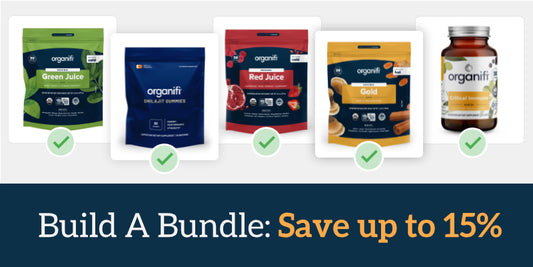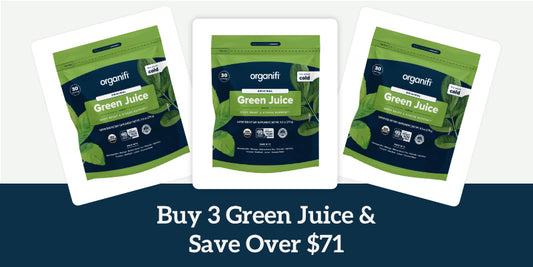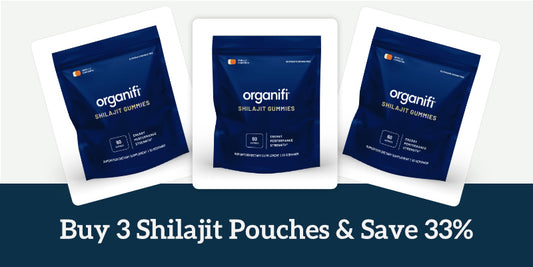A diet rich in plants like fruits, vegetables, and herbs is the backbone to joyful well-being. But if you’ve navigated the grocery aisles, you’ve likely had the opportunity to choose between organic, non-GMO, and standard produce. There’s a reason organic food is important. It’s more than just a label.
Organic 101
Let’s start with the basics of what it takes for produce to be labeled as “Certified Organic.” The USDA provides the organic labeling to food products that have “grown on soil that had no prohibited substances applied for three years prior to harvest. Prohibited substances include most synthetic fertilizers and pesticides.” If a substance does need to be used during the growing process, “...the substance must first be approved according to criteria that examine its effects on human health and the environment” (USDA.gov, 2019)
These substances include some that you might have heard of like Roundup, but also other chemicals like chemical additives, preservatives, and colorings. This is important to us as consumers because when it comes down to it, healthy soil ensures healthy produce. So if the soil lacks vitality and nutrients due to over-spraying with synthetic pesticides and herbicides, (non-organic), then you can guess that it trickles into the health of the fruits and vegetables on your plate.
Have you heard of Glyphosate?
Glyphosate is a non-selective herbicide, often used as a weed killer, that also kills most other plants. It has been identified as a “probable carcinogen” by the World Health Organization. However, glyphosate is very much known to negatively impact the gut microbiome by killing off good bacteria. This is because glyphosate is patented as an antibiotic and this makes it a hormone, immune, and endocrine system disruptor.
Glyphosate...bad for humans and the planet?
This herbicide not only disrupts humans. It disrupts our planet, too, by contaminating our soil, water, and air. And because it is a water-soluble toxin, it can never be taken out of the ecosystem. It evaporates, goes into the air (clouds) and showers our soils and bodies with glyphosate. So consider this, each rainfall may contain glyphosate, potentially contaminating those organic crops you purchased at your local health food store.
However, organifi is 100% organic, non-GMO, and certified Glyphosate Residue Free. You can rest assured that your superfood blends are free of harmful substances. By taking the initiative to ensure our blends are glyphosate residue free, we are taking the extra step to support organic farmers while protecting the planet.
How to make sure your produce is Glyphosate Residue Free
It goes without saying that if you have the choice of choosing between organic and non-organic, organic is a sure way to avoid synthetic chemicals and substances. However, it can be tricky to know for certain that the produce you’re purchasing hasn’t been exposed to glyphosate (or other synthetic sprays) by way of environmental residue. You can certainly avoid glyphosate residue exposure by looking for the label on your supplements (like we have here at organifi). Alternatively, visit your local farmer’s market and speak with the farmers in your area to see what they’re doing to prevent exposure.
About the Author: Nia Carrillo is a Mind-Body Nutritionist and Energy Healer specializing in helping individuals heal cycles with food, their body, and emotions. Nia believes in a whole-being approach, bridging the gap between science and the metaphysical for physical and spiritual transformation. She received her Master's in Nutrition in 2018 and is also trained in many modalities such as Hypnotherapy, MBSR (mind-body-spirit release) Technique, Emotional Clearing (MER), NLP, Reiki, and Breathwork. Nia is currently based in San Diego, with her husband and two dogs, Boots and Douglas.




